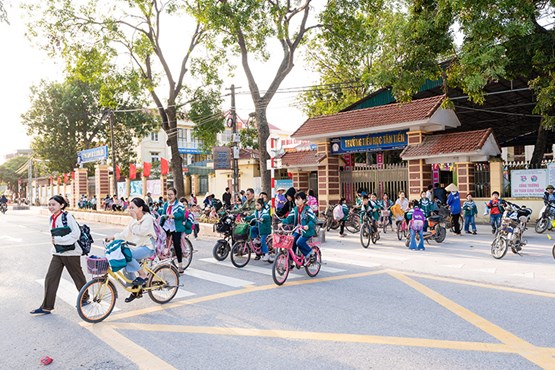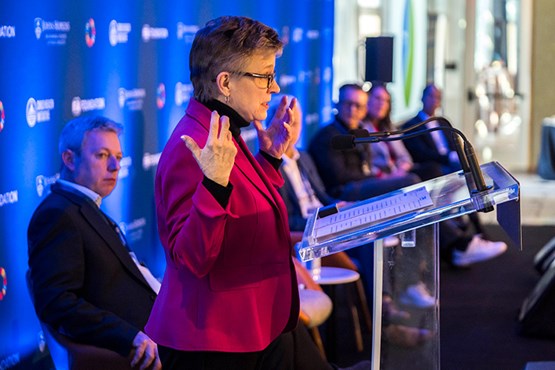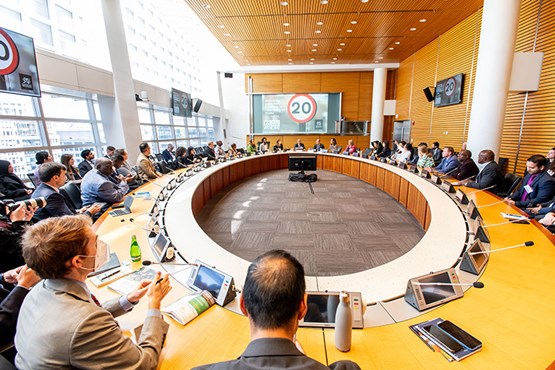Mexico National Helmet Coalition calls for certified helmet regulation adoption and awareness
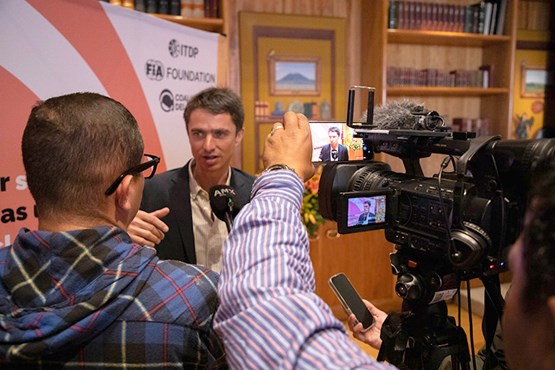
New federal helmet regulations must be adopted by all states to reduce the rising death toll of motorcyclists across the country, says the Mexican Motorcycle Helmet Coalition, supported by the FIA Foundation.
In the last five years, the motorcycle fleet in Mexico has increased by 89% and more than 4,000 motorcyclists die on the road annually – representing 26% of all road traffic crash deaths. The new General Mobility and Road Safety Law regulates for certified helmets at a federal level, however, the majority of Mexican states do not have legislation to establish the mandatory use of certified helmets. The federal District of Mexico City and the state of Jalisco have already updated their traffic regulations while nine other states have now made commitments to do the same.

Senator Patricia Mercado said: "The next steps are in the hands of federal state entities through traffic regulations. To date, only 10 States have harmonized their laws with the national Mobility and Road Safety law and we hope that they will soon do the same with their traffic regulations."
The Mexican Motorcycle Helmet Coalition includes national and local governments, the private sector, and civil society organizations focused on multisectoral collaboration to reduce the number of deaths and serious injuries from motorcycle traffic crashes nationwide. It is organized by the Institute for Transportation and Development Policy (ITDP) with the support of the FIA Foundation.
"It is important to promote the use of certified helmets, as they are an effective measure to reduce the number of deaths and serious injuries among motorcyclists. Our goal is to encourage people to wear life-saving helmets, rather than fine-dodging ones," said Gonzalo Peón, Executive Director of ITDP Mexico. "It shouldn’t be possible to wear a helmet that does not adequately protect the user; they shouldn’t be available on the market, nor should their use be allowed by traffic regulations."
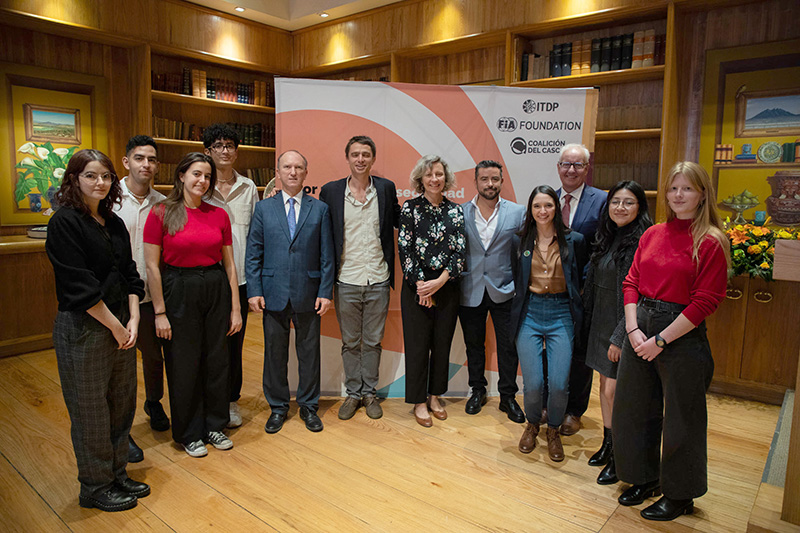
The use of helmets that comply with international certifications such as UN22.05 or US DOT standards, reduces the probability of death by up to 39%. Despite the benefits of using certified helmets, however, in Mexico public and political awareness of the issue is low.
Aggie Krasnolucka, Programmes Director of the FIA Foundation, said “Using certified motorcycle helmets is one of the most effective ways to protect the lives and well-being of the growing numbers of motorcyclists on Mexico’s roads. Motorcyclists should be confident of the quality when buying a helmet which is why the FIA Foundation supports mandatory certification for all helmets sold across the country.”
The seminar ‘Have We Made Progress on Motorcyclist Road Safety? Presentation of the Mexican Helmet Coalition Results’ was hosted by ITDP and brought together more than 60 members of the Coalition, interested organisations, and national media. The event included public sector, private sector, auto clubs and civil society updates, representing the main focus areas for the Coalition. The event focused on the low levels of public awareness of helmet safety standards and existing gaps in regulation and enforcement by individual states.
Saul Alevano, Secretary of Transportation for the Government of Jalisco said: “In the state of Jalisco, we are committed to saving lives of motorcycle users, through the design, implementation and enforcement of policies that include the use of certified or homologated helmets, which can help reduce the severity of injuries resulting from a traffic crash. As pioneers in the road safety agenda in Mexico, we have recently updated our regulations, where this measure was included, along with other solutions that are based on evidence like the reduction of speed limits, embracing the safe system's approach.”
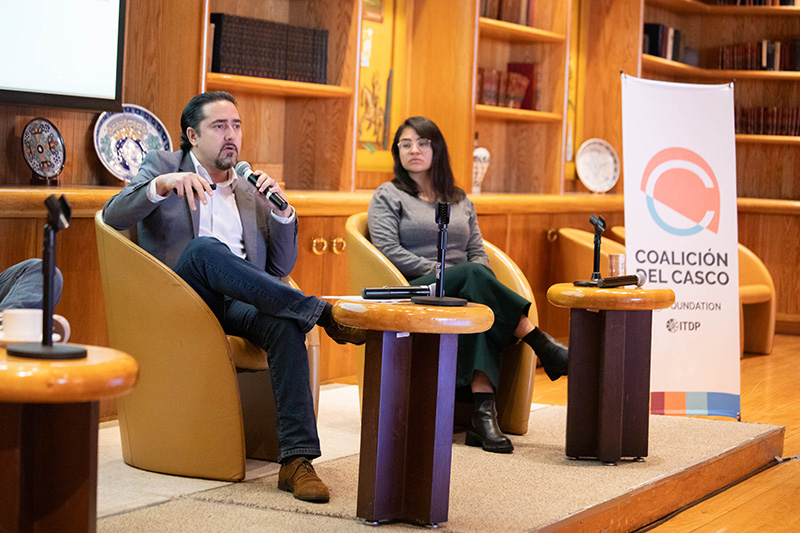
Representatives of the private sector discussed the need for only affordable and certified helmets to be sold at retail points in the country. The event highlighted strong industry support including from Italika, Mexico’s largest motorcycle manufacturer, along with trade organisations.
Sergio Mendoza, Director of Public Affairs for Italika, said: "We understood that it is not only about selling helmets. Our main objective is to fulfil our Social Commitment to help our customers reduce the risk of serious injury in the event of an accident. This will only be achieved with DOT and ECE Certified Helmets, hand in hand with a change in the Culture of Correct Helmet Use which we will be promoting in our points of sale."
The key role of auto clubs was highlighted with representatives from OMDAI Mexico which has offered its support to the Coalition including helmet distribution and awareness-raising activities, and Costa Rica who shared their experiences in mainstreaming certified helmets.
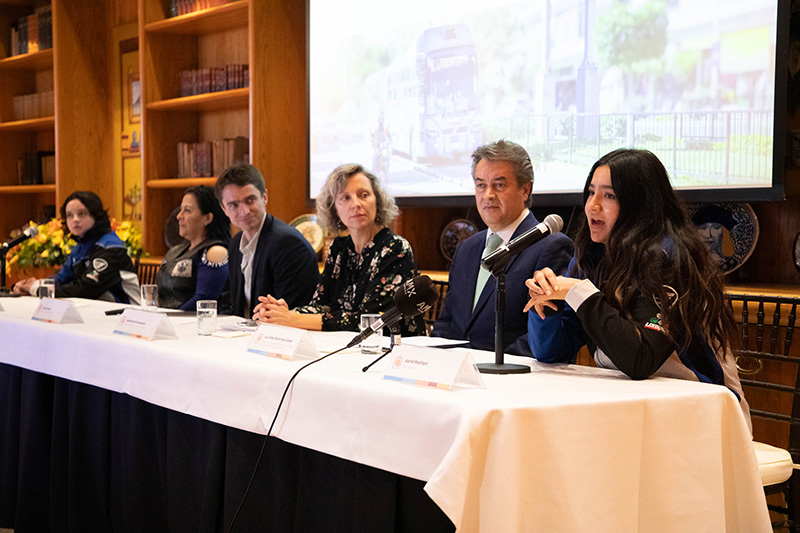
Nathalie Moutet, Director General of the Mexican FIA Auto Club OMDAI, added: "In OMDAI FIA México and ANA, as FIA members, we have always been strongly committed to road safety issues. Therefore, for more than 3 years we have joined this unique cross-sector coalition to promote the use of a safe and accessible helmet that meets minimum safety standards to protect the growing population of motorcyclists in Mexico. We were pleased to see that there was very satisfactory progress since the first discussions and we reiterate our support for the ongoing and future initiatives of this great coalition.”
The Jamaica Motorcycle Helmet Coalition also joined the event for knowledge exchange and best practice sharing as it begins its work to raise the profile of motorcycle safety in the country.

